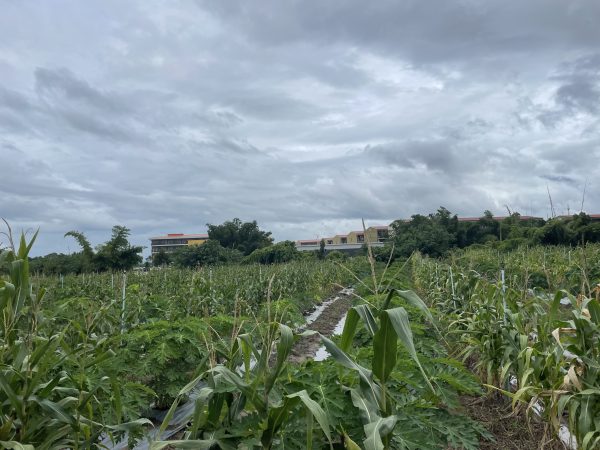By Tun Aung Shwe
Copyright thediplomat

Since the 2021 coup, Myanmar has entered a new phase of civil war marked by unprecedented territorial losses for the Myanmar military council and visible strains on manpower and institutional cohesion. In this weaker position, the military has leaned more heavily on allied militias – most prominently the Border Guard Force (BGF) (rebranded locally as the Karen National Army, KNA) and the Democratic Karen Benevolent Army (DKBA) in Karen State and, in other theaters, the Pa-O National Army (PNA), Shanni Nationalities Army (SNA), and Pyusawhti auxiliaries. The political economy that follows from these partnerships has coincided with Myanmar overtaking regional peers as the principal hub for industrial-scale scam centers. A newly released report indicates that since 2021, clusters of compounds along the Thai-Myanmar frontier, particularly near Myawaddy in Karen State, have more than doubled in number, with their footprint expanding at an estimated rate of 13.5 acres per month. Highly securitized complexes such as KK Park and Shwe Kokko function as “company towns,” with fenced perimeters, guard posts, dormitories, and on-site logistics, supported by river crossings, warehousing on the Thai side, generators, and broad adoption of satellite internet. Prior to the coup, the center of gravity sat on the China-Myanmar border under the Myanmar military-aligned Kokang Border Guard Force. The Operation 1027 offensives and subsequent Chinese pressure disrupted that northern ecosystem in late 2023, pushing syndicates and militia partners south rather than shutting them down. In short, pressure displaced the model, but did not dismantle it. Three dynamics explain the expansion. The first is fragmented security and protection rents. In areas where the state lacks territorial depth, allied militias broker “order” locally. Operators obtain access to land, power, and connectivity; militias monetize protection via rents, taxation, and service provision. This gives scam operations the ability to flee crackdowns in one district by relocating to another. The second is forced labor. Labor demand is met through trafficking for forced criminality: deceptive recruitment, confiscated documents, threats, resale of workers, and movement across porous crossings. This coerced labor model industrializes output while keeping costs low. The third factor is financial plumbing such as underground banking operations, and over-the-counter crypto brokering and stablecoin escrow services. These services permit rapid cross-border settlement and layering, reduce dependence on any single jurisdiction. Today’s militia-businesses have a long history. Under General Ne Win, the Ka Kwe Ye (KKY) system armed local militias to act as buffers against resistance forces in exchange for latitude in illicit commerce, especially opium in the Golden Triangle. Figures such as Lo Hsing Han exemplified how criminal capital bought political access, culminating in the rise of the Asia World conglomerate in the 1990s and the creation of a durable template in which state security needs and illicit enterprise were intertwined. The Border Guard Force system announced in 2009 formalized elements of this bargain by seeking to convert ceasefire groups into auxiliary units under nominal central command. Following the coup of February 2021, this militia economy widened from narcotics to online gambling and cyber-enabled fraud. For groups in Karen State, digital scams are particularly attractive. They require limited land and leverage cross-border digital rails rather than physical smuggling routes. The KNA/Karen BGF and elements of the DKBA now sit at key junctions, controlling land rights, guarding compounds, facilitating utilities, and taxing movement across Thai border crossings. The shift from heroin refineries is a technological adaptation within the same state-militia marketplace. On September 8, 2025, the United States sanctioned the KNA and associated entities over their roles in protecting and profiting from scam operations based in Shwe Kokko. U.S. authorities estimate that Americans lost more than $10 billion to Southeast Asia-based scams in 2024 alone. These are not the first Western actions against Myanmar-based scam operations. The European Union listed three individuals and one entity linked to Myanmar-based scam operations in October 2024, including actors associated with the KNA. The United States designated the KNA and leaders tied to Shwe Kokko in May 2025, citing the militia’s role in protecting and profiting from cyber-fraud compounds. Yet the immediate effect inside Myanmar has been limited by the model’s resilience. When the Thai government cut off power and fuel supplies in early 2025, generators and thousands of satellite terminals restored activity relatively quickly. Sanctions raise costs and complicate international finance, but the operational core continues so long as local political bargains and alternative payment networks remain intact. Earlier this month, the KNA and figures within the DKBA signaled their readiness to assist with security for the military’s December 2025 polls in Karen State. Within days, Myanmar military columns with KNA support regained segments of Asian Highway 1 and positions around Thingan Nyi Naung near Myawaddy, areas that KNU and PDF forces had contested or held for months. The Union Election timetable for the first phase of the election, which includes Hpa-an, Myawaddy, and Thandaung Gyi, indicates a priority to stabilize corridors vital to trade and movement ahead of polling. For local militias, election-season cooperation signals credible expectations of future operating space: that is, continued tolerance for illicit business operations in the areas under their control. If, after the polls, China and India – and some ASEAN states such as Thailand, Laos, and Cambodia – extend recognition or deepen official engagement, the junta will be able to claim limited regional, external legitimacy, even as domestic legitimacy remains absent. The most probable outcome is the hardening of the existing state-militia bargains. This will have several flow-on effects. If security guarantees to the junta harden, the expected political, legal, and operational costs for neighbors to undertake cross-border rescues or provide mutual legal assistance will rise, reducing the likelihood and scope of such cooperation. Territorial diffusion will accelerate, as operators move beyond border enclaves into townships under direct military administration and into urban commercial buildings, complicating detection and coordinated raids by foreign governments. Finally, financial adaptation will continue at pace, and over-the-counter crypto brokers and stablecoin escrows will further insulate financial flows from any single regulatory crackdown. Authorities may succeed in disrupting or forcing online scamming centers to move, but they will struggle to eliminate them. The military’s upcoming election, which will fail to meet democratic norms or any credible electoral standards, is essentially a scam election, serving primarily to consolidate security: to tighten central control where possible and formalize bargains with local militias where necessary. If that occurs, local warlords, particularly those embedded in Karen State, are positioned to gain greater leverage. In practical terms, that means a more permissive environment for compound-based scam centers, deeper entanglement of security provision and illicit revenue, and greater obstacles to victim rescues and cross-border legal cooperation.



